In partnership with Association Montessori International (AMI)

The holistic approach of Maria Montessori is designed to prepare all children for a life of caring, to become truly capable and productive individuals by focusing on their moral, behavioural, emotional, and intellectual development.
How Montessori differs
Montessori education builds a child’s capability to become a fulfilled and productive adult able to contribute to the world—at home, at work, and in their community. Maria Montessori’s observation of human development from birth to adulthood led to an education approach that supports children’s natural development, providing the skills and support to reach their full potential in life. With a strong emotional, behavioural, and moral foundation, children become motivated, active, and independent learners who are prepared for the real world.
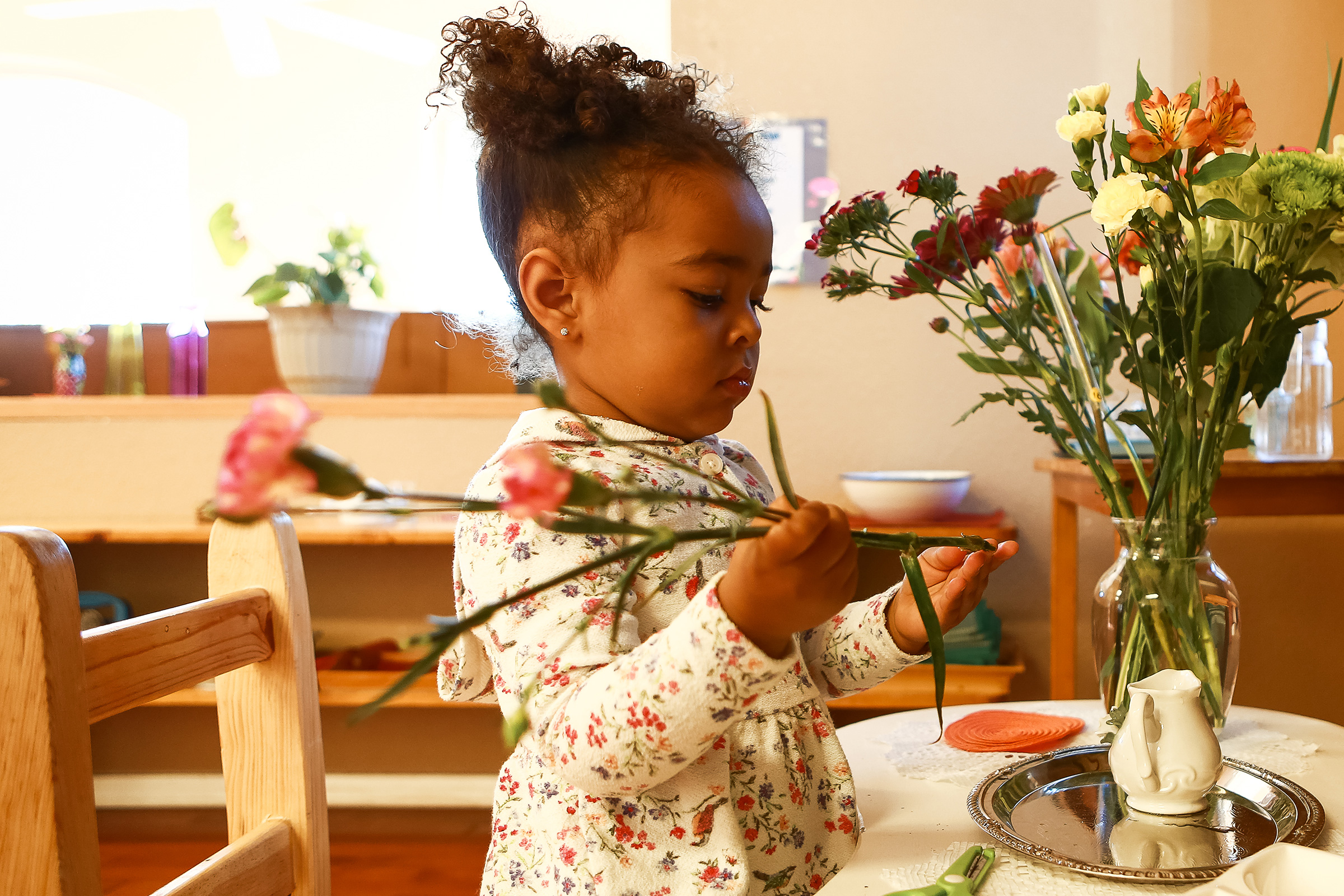
Montessori develops the whole child. Academics and knowledge-building are key qualities of Montessori, as is the ability to think creatively and understand the needs of others. When these fundamental skills are fostered early in life, children gain the capability to problem solve, persevere, and interact well with others in any circumstance. Source: Montessori-AMI
The Montessori approach is about creating children for a life of caring
“Today, we need an education that is about human development; about all the great things that humans do, because knowledge is not enough.” says Lynne Lawrence, Executive Director at Association Montessori Internationale (AMI).
“It’s about looking at children and saying: with what we’ve got, let’s create something that’s going to help them flourish. Let’s create something that’s going to help them live well with each other, and let’s allow them to interact freely, independently with the world around so that they become attached to it… so they become curious about it… so that they know that they can take agency, they have an effect on it…
“And so we see that really this approach is fundamentally about creating children for a life of caring about where they live, caring about their environment, caring about other people, but also developing themselves and their talents and their capacities… and that’s certainly what this world needs. And the Montessori approach does this not by imposing, but by having the children live it every single day with the adults that are with them and in, what we call, a prepared environment.”
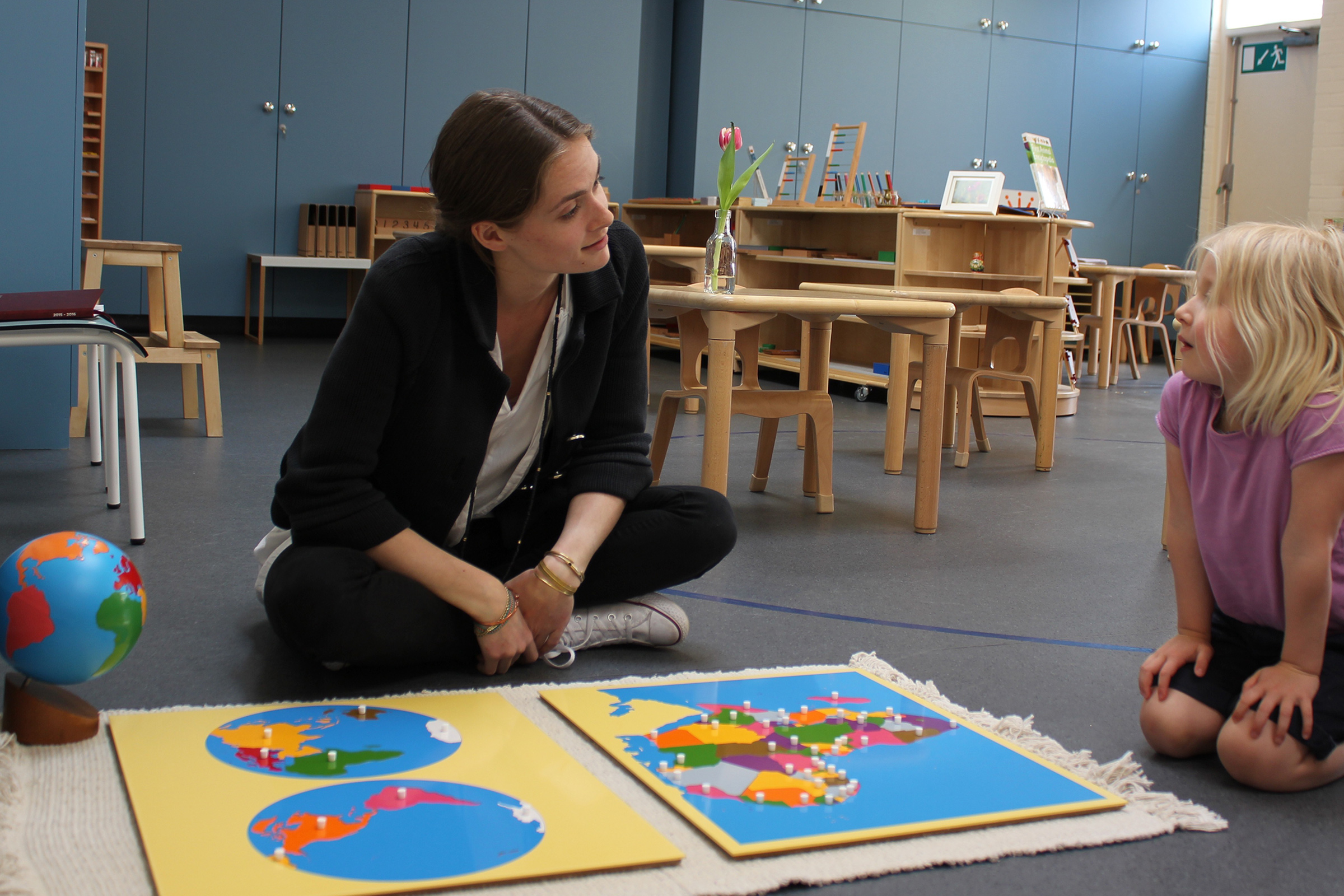
Montessori works in every setting for the success of each child. The world has changed, but what it takes to be successful hasn’t changed since Maria Montessori created her education approach over a hundred years ago: a strong emotional, behavioural, and moral foundation. Source: Montessori-AMI
About Association Montessori internationale (ami)
Montessori is an education and a perspective that moves from learning to application through curiosity and creativity. AMI serves as the network and community that applies the principles of Montessori in many aspects of life and living, building upon the approach without compromising its integrity. As such, it is the recognised authority for those interested in applying the Montessori approach at multiple levels—from education to humanitarian causes to research and the broader physical and social environment.
First and foremost, AMI empowers teachers and communities through the educational approach of Maria Montessori, adapting it across continents and cultures to help children develop their true potential and make a difference in the world.
Montessori works in every setting for the success of each child. The world has changed, but what it takes to be successful hasn’t changed since Maria Montessori created her education approach over a hundred years ago: a strong emotional, behavioural, and moral foundation.
Montessori helps children develop into individuals who know right from wrong, who have self-confidence and are connected with others, who find fulfilment, and connect and contribute to the world.
Source: Montessori-AMI

AMI’s global network empowers teachers and communities through the holistic approach of Maria Montessori, helping all children become truly capable and productive individuals by focusing on their moral, behavioral, emotional, and intellectual development. Source: Facebook/MontessoriAMI
“Help me to do it myself. That’s the key.”
“Help me to do it myself. That’s the key.” Tessa Wessels, Director at Casa Montessori School, told BrightVibes. “We really like to use the word ‘guide’. That is what we are. So, first of all, you have to have love for the children, and second of all you have to have knowledge and skills. And how does it change? It adapts towards the developmental needs of the children.”
“We’re sitting here today in a school that has done exactly what it needed to do in this country… and any child from the neighbourhood can come for free… and that’s the goal really now, to spread more of that in the world.” Lynne Lawrence, Executive Director at AMI, told us.
Of the perception that Montessori education is elitist, Lawrence says, “We see that the work in refugee camps and the work in very underserved communities… Montessori is appearing in all of those different environments and different places.”
“I think the Montessori approach is relevant today because we look around us and we see that we have serious concerns about our climate and the effect of our life on our natural world. We see that prejudice still exists, that people can still be judged for their belief systems or for the colour of their skin…
“Now, Montessori education believes that that is actually not the normal state of humans. Our general inclination is to live well with others. Our general inclination is to take care of the things that we use and the place in which we live and to love it. We have a very strong capacity to reach out and connect with others.”
Tessa Wessels is Director at Casa Montessori School, Pijnacker-Nootdorp, Netherlands
Lynne Lawrence is Executive Director at Association Montessori Internationale
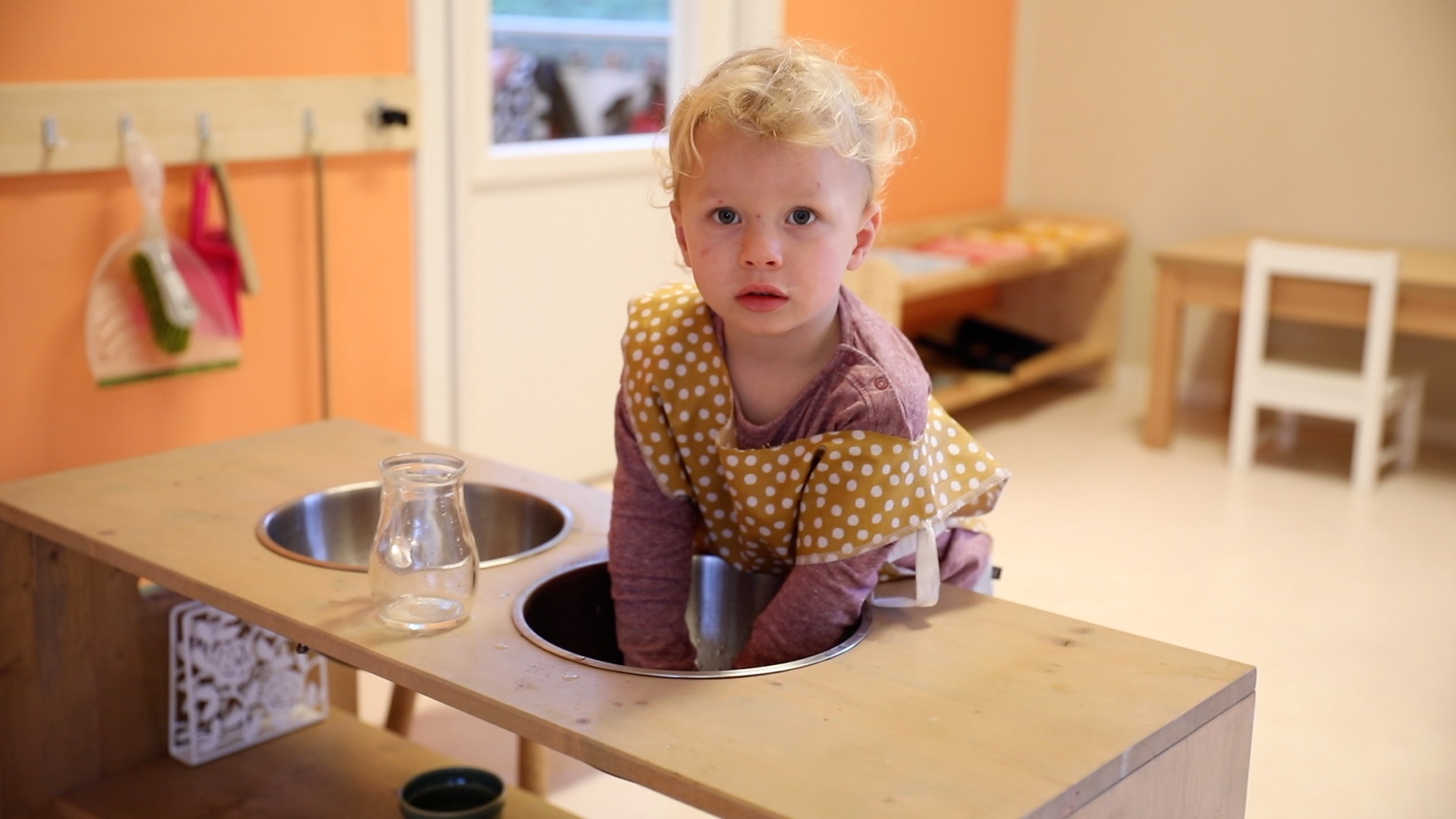
Everything is at their height so that the child has success. Source: BrightVibes, Casa Bilingual Montessori School
Casa Bilingual Montessori School — Netherlands
Imagine a place where children are encouraged to explore the world around them, broaden their horizons and knowledge, and develop their talents. A place where they are cherished, where they are free to work at their own pace – in essence, a place of learning your children would enjoy being in.
Casa’s educational institution is laid out and governed by the International Montessori Association guidelines; guidelines that they have put into place precisely as Maria Montessori intended. They also combine these guidelines with a flexible schedule or program for working parents, multilingual families and expats – people who are in need of the personal touch they can offer with regards to their children’s education and daycare. Casa’s aim is to be a second home for children, and provide an “education for life.”
BrightVibes filmed in Casa Bilingual Montessori School, Pijnacker-Nootdorp, Netherlands. Check out their website.
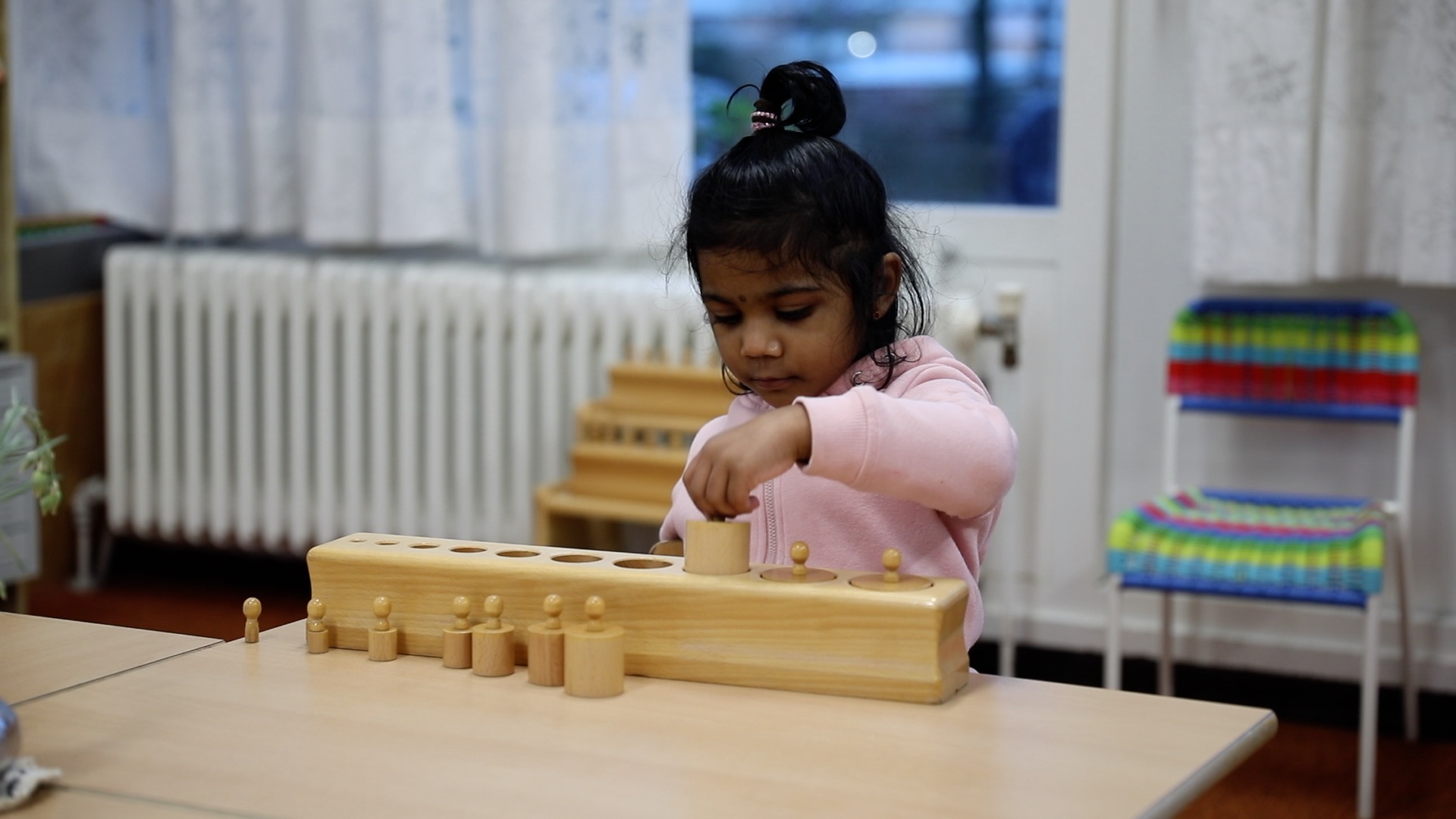
A miniature community At Casa, they do their utmost to encourage each child in developing their own individual talents and traits within the miniature community, where each student is responsible not only for themselves but for the community as a whole. Source: Brightvibes, Casa Bilingual Montessori School
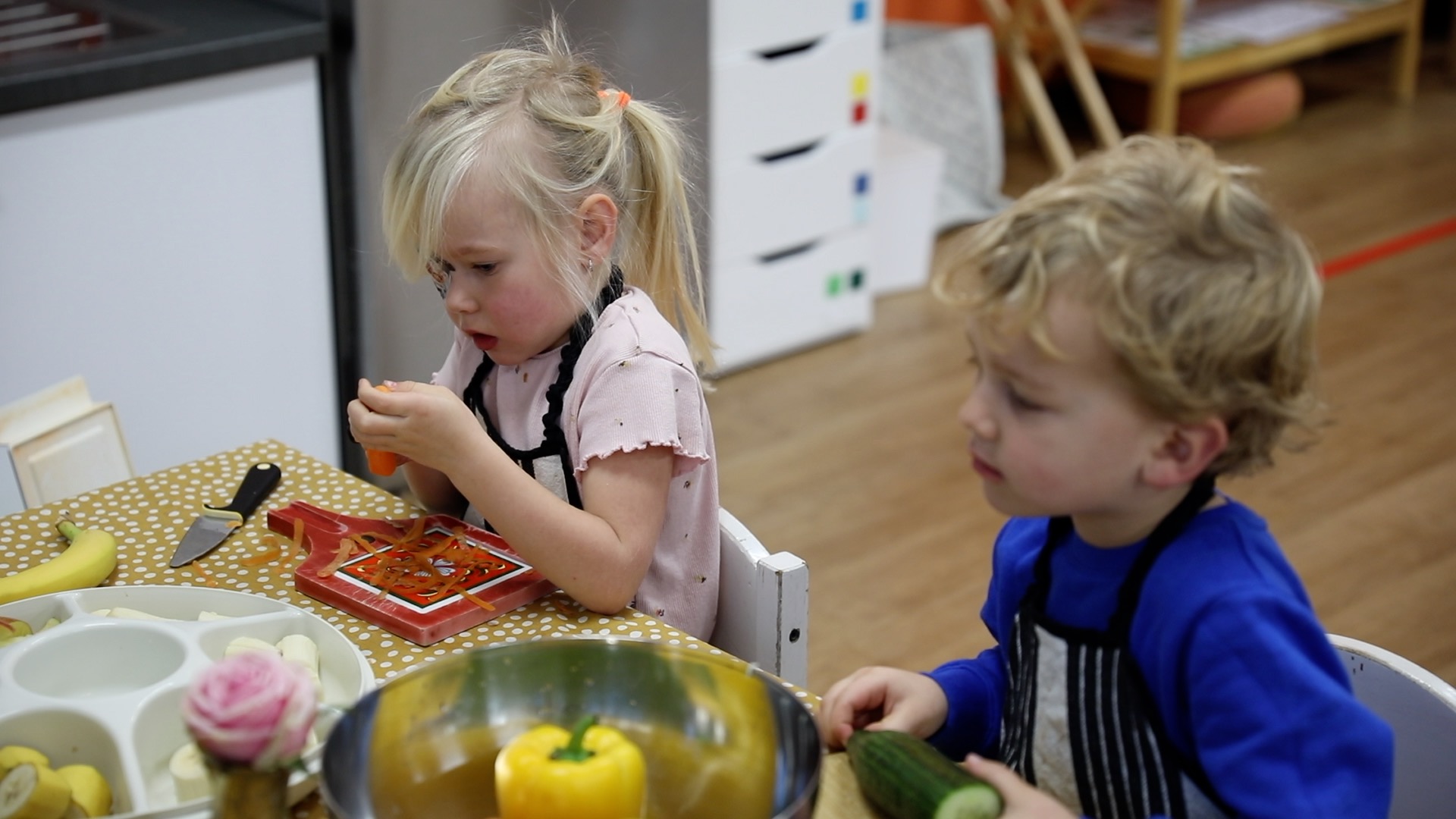
At Casa, having the classrooms and work periods available all day means that the children have the opportunity to attend other activities throughout the day. Many of the activities are free for them to choose to go to themselves, while there are a few others they need to sign up for. Source: BrightVibes, Casa Bilingual Montessori School
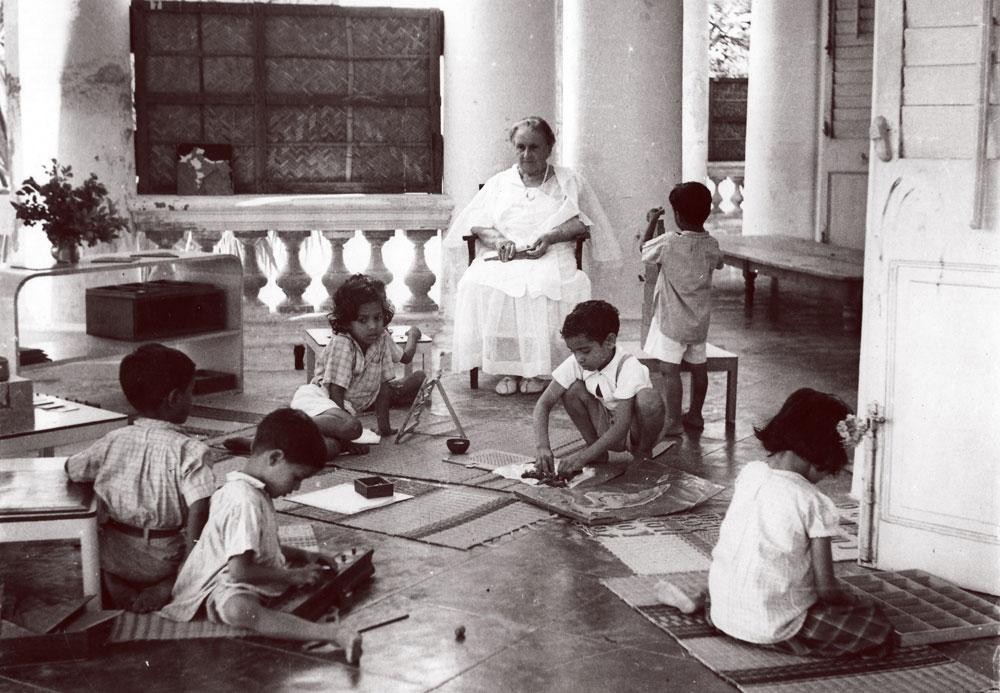
HOW THE INSPIRATIONAL LIFE OF MARIA MONTESSORI HAS IMPACTED THE WORLD
Last year was the 150th anniversary of the birth of Maria Montessori, who revolutionised ideas on education, human development and equality. Today, Montessori education is offered in over 25,000 schools across 145 countries.